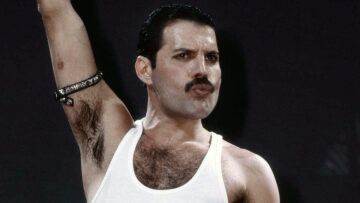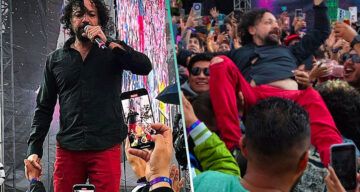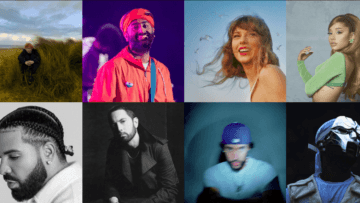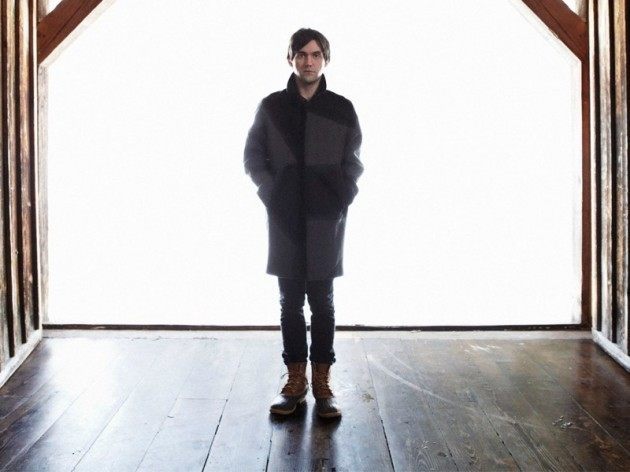
Conor Oberst es una leyenda viviente. A lo largo de su carrera se ha encargado de generar culto alrededor, no solo de su persona, sino de todos los proyectos a los que ha dado vida. Desde Desaparecidos, hasta Monsters Of Folk, hay una mística especial que emana de toda su música. Con tanto camino recorrido, es sorprendente que aún logre mantenerse vigente en este mundo hiperestimulado. Más sorprendente aún, que lo logre siendo simplemente él: Conor Oberst.
Por eso, cuando tuvimos la oportunidad de platicar con él, previo a su próximo concierto en México, decidimos hacerle una simple pregunta: ¿Cuál es la diferencia más grande de ser un músico esta década contra la pasada?. A continuación su respuesta:
También te puede interesar: “Apple acaba de arruinar el mejor momento de tu semana para siempre”
A musician in this and the last decade, by Conor Oberst
“It is very different. I think the music business has been in constant state of change for more than a decade now. So it is hard to know what that will mean as far as the industry and how music will be consumed and artists compensated for their work. That being said music itself is alive and well. Creative people keep creating and people interested in finding new music have more ways than ever to discover it. I come from a more traditional world of recording with real instruments in a real studio but a lot of music made today isn’t made that way at all.
If you are talking about being a working musician, the challenge as it has always been is getting noticed and getting paid. In some ways it is much easier to make a recording today and share it with others than it has ever been because of technology but there is just so much happening all the time now that much of it just gets lost in the sheer noise of it all and of course no one feels they should have to pay for music anymore which is problematic for working musicians. I still think the best thing you can do creatively as a musician is to make music you are inspired to make and not worry about who hears it.
I think technology has made recording cheaper and easier than ever. I’m not sure it makes for better music but it does make for more music and more opportunities for people to be involved. Then the internet allows anyone to send their art out into the world and people everywhere can choose to listen if they want. I think these are all new developments in the last 15 years that are great for musicians just starting out or who want to do it as a hobby. Also technology is making some things sonically possible which were not before which is interesting.”
“Es muy diferente. Creo que el negocio de la música ha vivido en un estado de cambio constante por más de una década. Así que es difícil saber que significará hacia el futuro de la industria y cómo se consumirá la música y cómo los artistas serán compensados por su trabajo. Dicho esto, la música está viva y bien. La gente creativa sigue creando y la gente interesada en descubrir música nueva tienen más formas que nunca de hacerlo. Yo vengo de un mundo mucho más tradicional, de grabar con instrumentos reales en un estudio real, pero mucha de la música que se hace hoy se hace con procesos completamente ajenos a esos.
Si estamos hablando de ser un músico de profesión, el reto, como siempre, es ser reconocido y obtener ingresos. De alguna forma es mucho más fácil hacer una grabación hoy y compartirla con otros gracias a la tecnología, pero hay tantas cosas pasando todo el tiempo ahora que mucho de eso se queda perdido en todo el ruido y por supuesto, nadie cree que debería seguir pagando por la música, lo cual es problemático para los músicos de profesión. Yo aún creo que lo mejor que puedes hacer creativamente como músico es hacer la música que estás inspirado a hacer y no preocuparte de quién la escuchará.
Creo que la tecnología ha hecho los procesos de grabación más baratos y rápidos que nunca. No estoy seguro que eso resulte en mejor música, pero sí genera más música y da más oportunidades a la gente de involucrarse. Luego el Internet le permite a cualquiera compartir su arte con el mundo y a cualquier persona escucharla si así lo desea. Creo que todos estos nuevos desarrollos de los últimos 15 años son muy buenos para músicos que están empezando o que quieren hacer esto como hobby. La tecnología también está haciendo posibles, hablando sobre el sonido, algunas cosas que antes no lo eran y eso es interesante.”
Conor Oberst dará un concierto junto a Dawes en El Plaza el próximo 30 de enero. Los boletos se encuentran a la venta a través del sistema Ticketmaster, da click aquí para conseguir los tuyos.
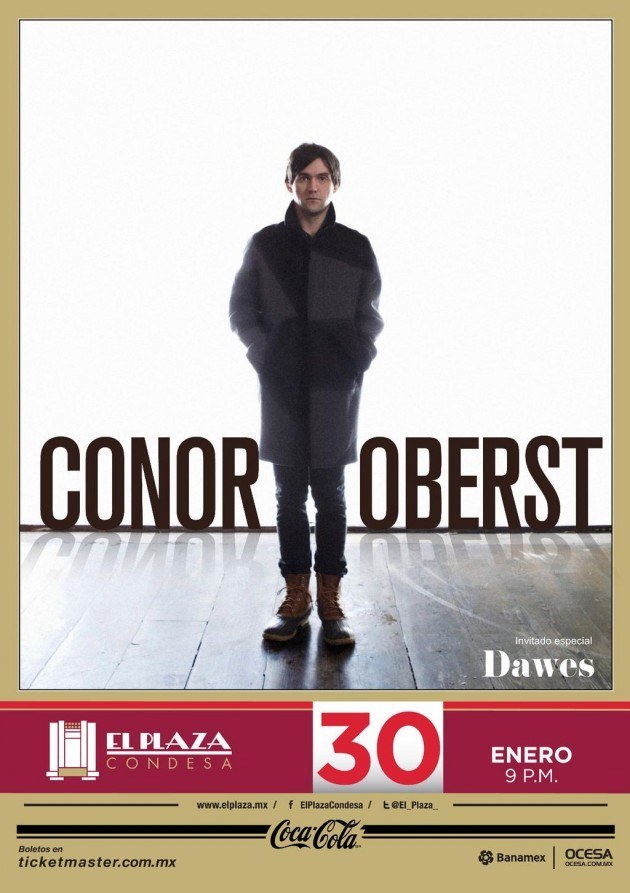
Oberst presentará su álbum solista más reciente titulado Upside Down Mountain que puedes escuchar a continuación vía Spotify:
